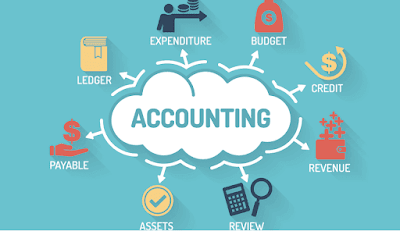7 Types of Accounting Services
1. Monthly Bookkeeping Services: This is the clear heading of the books, records, and tax filling of many people and an assortment of organizations. Notwithstanding a month to month count, some accounting administrations will give week by week, quarterly, and yearly breakdowns of consumption and incomes. This point by point examination is to a great degree valuable in getting a monetary outline of your money.
2. Tax Preparation Services: Tax Preparation incorporates dealing with all duty records, structures, and receipts to set up a precise expense form. This also includes utilizing the present assessment year's standards to concoct the most ideal result conceivable. Whether rounding out the short shape or taking into consideration different conclusions, this sort of accounting administration is exceptionally regular and fundamental to complete right.
3. Payroll Bookkeeping Services: Organizations with a few too many representatives can think that it’s difficult to construct and keep up legitimate finance. Having finance that is both right and done on time is fundamental to maintaining a business. Both criminal and common laws could be abused with broken finance, which is the reason it is imperative to have done effectively.
4. Financial Services: Financial statements can incorporate but are not constrained to salary statements, asset reports, income articulations, and proprietor/shareholder value. The reason for the financial statement should be simple to peruse yet exact preview of the business' funds for the past, present, and future.
5. Business Setup: Whether self-employed, own a family business, or are looking to create a new startup, knowing how to incorporate correctly is an essential first step. The main benefit of a corporation set-up is the more lenient taxes and allowances for deductions. Each state has their own rules of incorporation. However, the benefits in many states include extended benefits for employees, asset protection, and name recognition.
6. Accounts Receivable & Accounts Payable:
AP: Accounts payable is cash owed by a business to its providers that appeared as a risk on an organization's asset report. It is particular from notes payable liabilities, which are obligations made by formal legitimate instrument documents.
AR: Account receivable is the money that a company has the authority to receive because the company sold goods and services to customers. Account Payable is liabilities and Account receivables are assets. Accounts receivables are also known as commercial receivables. Accounts receivable is a category of transaction dealing with the billing of customers for goods and services.
7. Bank Reconciliation: Bank reconciliation is a process performed by companies to confirm that the company’s records are correct or not. The bank reconciliation for a company’s financial records starts with the company taking note of the balance per the bank explanation and afterwards making a few documents about that balance.



Comments
Post a Comment